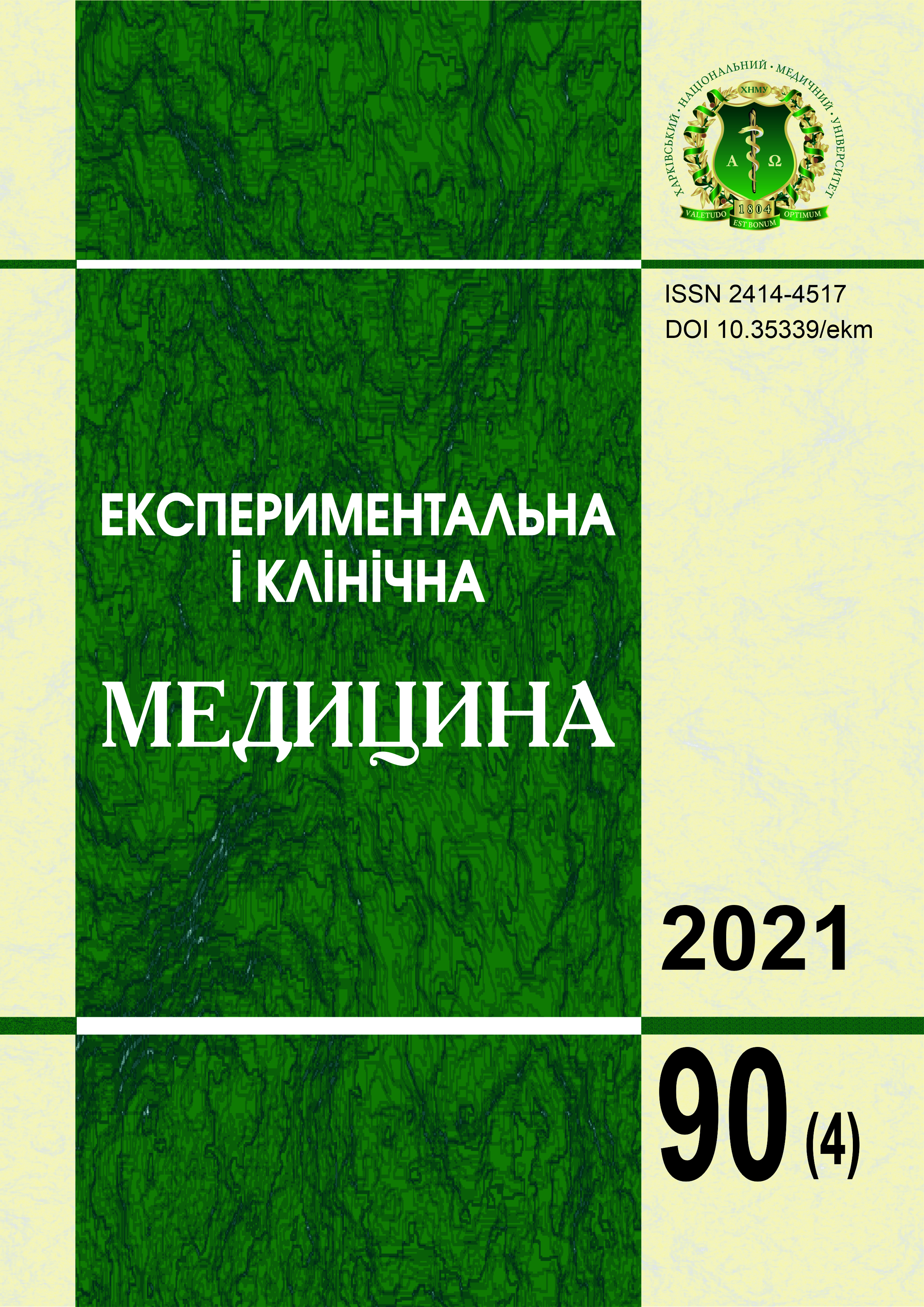Abstract
The COVID-19 pandemic is the first pandemic in world history that unfolds in the context of the existence of social networks. And therefore, it is accompanied by unprecedented panic, the consequences of which can significantly worsen the own consequences of COVID-19. No one is spared stress during a pandemic, but the most vulnerable to it, are the elderly, children and adolescents, medical workers, and, as sad as it sounds, people with mental illnesses will have to pay the highest price. A comprehensive clinical-psychopathological and psychodiagnostic examination of 125 patients with COVID-19 with non-psychotic mental disorders (68 women and 57 men) with an average age (36.0±3.4) years was conducted. As shown by the results of the clinical-psychopathological study, the clinical picture of non-psychotic mental disorders in the examined patients is represented by depressive, anxious, astheno-neurotic and cognitive syndromes. Taking into account the data obtained during the comprehensive examination on the psychological, pathopsychological, and clinical-psychopathological features of patients with COVID-19, a model of personalized psychotherapeutic support for patients who suffered from COVID-19 was developed, which includes psychotherapy and psychoeducation. According to the results of the study, against the background of the use of psychoeducational programs in the structure of psychotherapeutic support for patients with COVID-19, positive dynamics of the mental state, a decrease in the expressiveness of anxiety-depressive symptoms were noted in the examined patients; positive transformation of coping strategies; the transition of non-constructive types of attitude to the disease into adaptive, constructive ones. Regarding the dynamics of patients’ attitude to disease against background of treatment – types of attitude have changed, which consists in increasing the indicators of harmonious and ergopathic types of attitude to the disease.
Keywords: mental disorders, coronavirus infection 2019-nCoV, psychotherapy, coping strategies, features of patients with COVID-19.
References
Zhang Y, Ma ZF. Impact of the COVID-19 pandemic on mental health and quality of life among local residents in Liaoning Province, China: a cross-sectional study. J. Environ. Res. Public Health. 2020. Mar 31;17(7):2381. DOI: 10.3390/ijerph17072381. PMID: 32244498.
Chaban OS, Haustova OO. Mental health during the COVID-19 pandemic (features of psychological crisis, anxiety, fear and anxiety disorders). NeuroNews. 2020;3(114):26-36. Available at: https://neuronews.com.ua/uploads/issues/2020/3(114)/nn20_3_26-36.pdf [in Ukrainian].
Gao J, Zheng P, Jia Y, Chen H, Mao Y, Chen S, et al. Mental health problems and social media exposure during COVID-19 outbreak. PLoS ONE. 2020;15(4):e0231924. DOI: 10.1371/journal.pone.0231924. PMID: 32298385.
Huang Y, Zhao N. Generalized Anxiety Disorder, Depressive Symptoms and Sleep Quality during COVID-19 Epidemic in China: A Web-Based Cross-Sectional Survey. Psychiatry. Res. 2020;288:112954. DOI: 10.1016/j.psychres.2020.112954. PMID: 32325383.
Pishel VYa, Ilnicka TYu, Chumak SA, Stepanova NM, Yachnik YuV. Mental health of medical workers in the context of the COVID-19 pandemic. NeuroNews. 2020;10(121):20-2. Available at: https://neuronews.com.ua/uploads/issues/2021/10(121)/nn20_10_20-22.pdf [In Ukrainian].
Gonzаlez-Sanguino C, Ausin B, Castellanos MA, Saiz J, Lopez-Gomez A, Ugidos C, et al. Mental Health Consequences during the Initial Stage of the 2020 Coronavirus Pandemic (COVID-19) in Spain. Brain Behav. Immun. 2020;87:172-6. DOI: 10.1016/j.bbi.2020.05.040. PMID: 29786478.
Zarocostas J. How to fight an infodemic. The Lancet. 2020;395(10225):676. DOI: 10.1016/S0140-6736(20)30461-X.
Yureva LN, Shusterman TI. The COVID-19 pandemic: risks to psychological well-being and mental health. Ukrainian Bulletin of Psychoneurology. 2020;28(2(103)):5-10. DOI: 10.36927/2079-0325-V28-is2-2020 [In Ukrainian].
Tkachenko OV. Impact of the COVID-19 pandemic on mental health (a review of the literature). Ukrainian Bulletin of Psychoneurology. 2021;29(1(106)):55-9. DOI: 10.36927/2079-0325-V29-is1-2021. [In Ukrainian].
Duan L, Zhu G. Psychological interventions for people affected by the COVID-19 epidemic. Lancet Psychiatry. 2020;7(4):300-2. DOI: 10.1016/S2215-0366(20)30073-0. PMID: 32085840.

